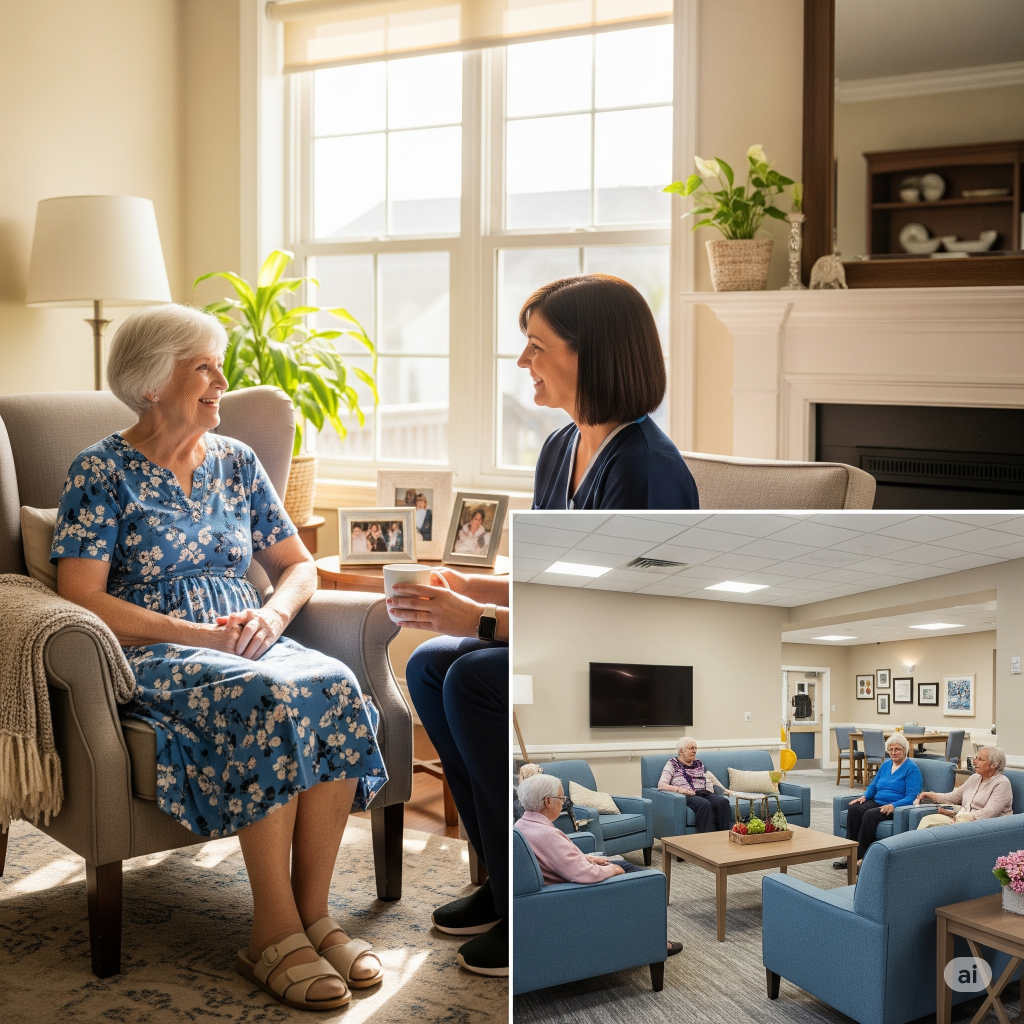Introduction
As loved ones age or experience physical limitations, families often face an important, sometimes difficult decision: should they arrange in-home care services or transition their loved one to an assisted living facility?
Both options offer valuable support, but the best choice depends on your loved one’s medical needs, personal preferences, independence level, and family caregiving situation. If you’re navigating this decision in Northern Virginia, this guide breaks down the key factors to help you make an informed, compassionate choice.
What Is Home Care?
Home care services involve professional caregivers coming into a person’s home to assist with daily activities. Services typically include:
- Personal care (bathing, grooming, dressing)
- Light housekeeping
- Companionship
- Meal preparation
- Medication reminders
- Transportation assistance
- Respite care for family caregivers
Impeccable Advantage, for instance, specializes in tailored, non-medical home care for seniors and adults with disabilities across Northern Virginia, offering personalized care plans.
What Is Assisted Living?
Assisted living facilities are residential communities providing on-site staff, communal meals, activities, and personal care services for seniors who need moderate help with daily living but don’t require 24/7 medical supervision.
Residents typically live in private or semi-private apartments and have access to:
- Assistance with bathing, dressing, and medications
- 24-hour staff availability
- Housekeeping and meal services
- Social activities and wellness programs
Key Differences Between Home Care and Assisted Living
| Feature | Home Care | Assisted Living |
|---|---|---|
| Location | Client’s private home | Residential community |
| Caregiver Consistency | Usually 1-3 caregivers | Multiple rotating staff |
| Independence Level | High — remains in own home | Shared spaces, set facility rules |
| Social Opportunities | Family, neighbors, companion visits | Group meals, daily social activities |
| Customization | Highly personalized care plan | Standardized, facility-wide services |
| Cost Structure | Hourly or flat daily rate, flexible hours | Monthly rent + care service fees |
| Medical Oversight | Limited to basic non-medical care | Staffed 24/7 with medical support if needed |
When to Choose Home Care
Consider home care if your loved one:
- Wants to remain in their own home
- Requires minimal to moderate daily assistance
- Prefers one-on-one, personalized care
- Has family or friends nearby for extra support
- Needs short-term post-hospitalization care
- Values privacy and familiar surroundings
When to Consider Assisted Living
Assisted living may be a better fit when your loved one:
- Needs help with several daily living tasks
- Prefers built-in social opportunities
- Requires more structured, on-site supervision
- Is experiencing memory challenges or falls frequently
- Lacks family or friends nearby for additional care
How to Make the Right Decision
- Assess Needs: Use a checklist of daily activities, health conditions, mobility, and cognitive status.
- Evaluate Finances: Compare home care hourly rates to assisted living monthly fees.
- Consider Preferences: Prioritize what your loved one values — independence, privacy, or community life.
- Tour Local Facilities & Interview Agencies: Arrange visits and virtual consultations.
- Involve Your Loved One in the Decision: Include their voice in discussions to honor autonomy.
Conclusion
There’s no one-size-fits-all answer to the home care vs. assisted living question. The right choice balances physical safety, emotional well-being, family dynamics, and financial feasibility.
At Impeccable Advantage, we support families with in-home care options tailored to your loved one’s lifestyle and care needs. If you’re weighing options in Northern Virginia, we’d be honored to guide you through a complimentary care consultation.

